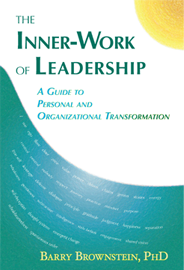The Wall Street Journal reported yesterday that “after poor holiday sales and new estimates for a costlier turnaround, [Blockbuster] is asking bondholders for an additional $200 million to $250 million to be used after the chain exits court protection.” You may be wondering who would return their phone calls? Perhaps those investors willing to listen use sunk costs in their decision-making and reason incorrectly, I’ve lost so much already; perhaps if I stay the course, I will get some of it back.
When my twins were younger, Blockbuster almost seemed like a fine place to get a video. I say almost because even then on a Saturday night, they rarely had in stock any movies my wife and I wanted to see. But Blockbuster was an easy drive from our home, and a couple of hours sitting in front of a movie were welcome after two toddlers finally got to sleep.
Even then, the genesis of Blockbuster’s destruction was apparent: long lines at peak hours, too few copies of popular movies, short windows of rental for popular movies, and late fees that enraged their customers. They behaved like they had a monopoly; and for awhile, they almost did. But their management mistook a temporary market advantage to mean that they didn’t have to innovate and that they had a license to piss off their customers. But Blockbuster faced real and potential competitors; they were not the post office.
Every time a customer had to make an extra trip to avoid a late fee, every time a customer came home empty handed because there was nothing to rent, Blockbuster’s failure to consider the experience of their customers opened the barn door to potential competitors.
As is often true of the arrogant, Blockbuster’s leadership was blind to shifting consumer demand. Initially, Blockbuster literally laughed at Netflix. Greg Sandoval tells the story of how in 2000, Netflix CEO and co-founder Reed Hastings approached Blockbuster CEO John Antioco about forming a partnership. Barry McCarthy, then the chief financial officer of Netflix, was in on the meeting; in his words,
I remembered getting on a plane, I think sometime in 2000, with Reed [Hastings] and [Netflix co-founder] Marc Randolph and flying down to Dallas, Texas and meeting with John Antioco,” McCarthy said in the interview “Reed had the chutzpah to propose to them that we run their brand online and that they run [our] brand in the stores and they just about laughed us out of their office. At least initially, they thought we were a very small niche business. Gradually over time, as we grew our market, his thinking evolved but initially they ignored us and that was much to our advantage.”
Later, Blockbuster tried to copy Netflix; but they made little inroads as their corporate culture couldn’t match that of Netflix in delivering a superior customer experience. In my book The Inner Work of Leadership, I tell how Netflix supports their innovative culture with strong corporate values and minimal rules for their employees. With Hastings at the helm, Netflix employees are guided to align their behavior with nine values: judgment, innovation, impact, curiosity, communication, courage, honesty, selflessness, and passion. Hastings writes,
Lots of organizations have lofty value statements; but sometimes they are not reflective of what the organization actually values. To understand the real values of a company, watch how people interact with one another, who gets promoted, and who is let go.
At Netflix we value—and reward—the … nine behaviors. The more these sound like you, the more likely you are to thrive at Netflix. Feedback on how employees can improve in these nine dimensions is frequent via online 360 reviews. We do our best to push each other to embody these values fully.
The particular values of Netflix are not the point. The organizational culture of Netflix supports employees living the organizational values, and that is something to emulate. Valuing values has worked for Netflix, and the results are impressive.
One CEO laughed at competitors; the other CEO built a strong corporate culture that valued serving consumers. Who came out on top is no surprise. The market creates new wealth by rewarding entrepreneurs based on who can serve the consumer the best.
When Blockbuster is finally gone, it will seem like jobs have been lost. But what the unobservant will not see is that all the while Blockbuster was decaying, better and more fulfilling jobs were being created by Netflix. Remember that the next time a politician tells you about bailing out another firm or industry. At best, government subsidies transfer wealth from one group to another. Ultimately, they destroy wealth and lead to stagnation.


